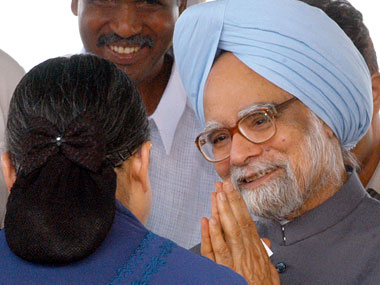by Bhupendra Chaubey Prime minister Manmohan Singh’s attempts to overhaul the internal security scenario in the country have already run into an opposition-created storm. Even before today’s meeting with the Chief Ministers began, opposition Chief Ministers like Narendra Modi, Jayalalithaa, and Naveen Patnaik had declared war on the government. It was clear from the get-go, that the Prime Minister first had to do a political tight rope walk before working out the logistics of improving internal security Adding to Manmohan Singh’s woes is Tamil Nadu chief minister Jayalalithaa’s attempts to emerge as a rallying point for the Chief Ministers who are opposed to all the UPA’s plans to improve internal security. [caption id=“attachment_277015” align=“alignleft” width=“380” caption=“What stopped the PM from calling Jayalalithaa over for talks before the meeting? PTI”]  [/caption] Whether it’s NCTC, an amendment to the Border Security Forces (BSF) act or even financial powers, the main bone of contention between the states and centre today is, “who controls the levers of power?” Union Home minister P Chidambaram is convinced that the way forward is to ensure the emergence of a unified central unit that will deal with terrorism or other security challenges. Already in different states, one has seen the confusion which exists between multiple agencies like the NIA, CBI, IB and local police. What was needed perhaps from the centre was an attempt to evolve a political consensus. As with all other matters related to governance, even on security, the centre needs to reach out to states. What prevents a Chidambram from inviting a Narendra Modi for breakfast BEFORE an important meet like today’s? What prevents a Sonia Gandhi from calling over a Naveen Patnaik? Or the PM inviting Jayalalithaa? As long as this situation of zero communication between the centre and states persists, nothing will improve. India can see many such meetings, but on the ground the situation will not change. Bhupendra Chaubey is CNN IBN’s National Bureau Chief.
Whether its NCTC, an amendment to the Border Security Forces (BSF) act or even financial powers, the main bone of contention between the states and centre today is, “who controls the levers of power?”
Advertisement
End of Article
Written by FP Archives
see more


)

)
)
)
)
)
)
)
)



